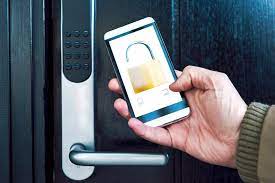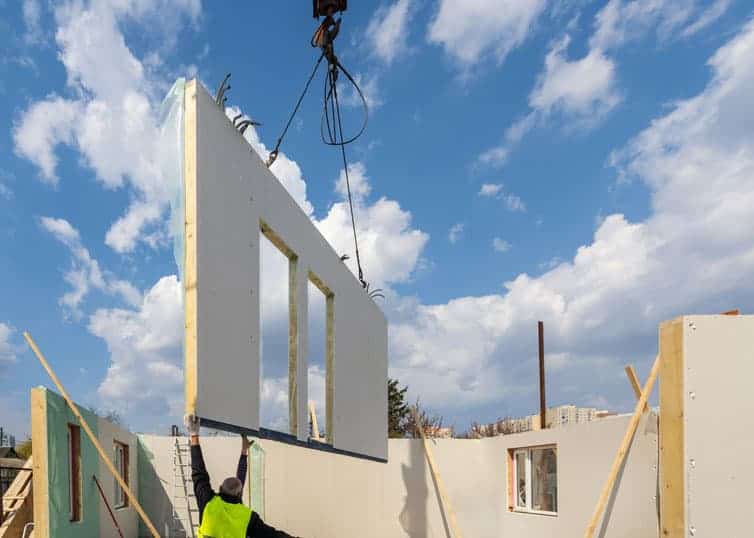The rise of smart home technologies is reshaping how real estate transactions occur. Among these innovations, smart lock scheduling stands out for its ability to grant secure, convenient access to properties. When integrated with Multiple Listing Services (MLS), this technology transforms how agents, buyers, and sellers coordinate showings, boosting both security and efficiency. This article explores the full landscape of MLS integration with smart lock scheduling and its implications across the real estate ecosystem.
Overview
Smart lock scheduling involves the remote management of property access via connected locks. These systems are especially beneficial in real estate, where property showings and inspections are frequent. When synced with MLS platforms, smart lock scheduling can automate permissions, eliminate manual coordination, and provide detailed access logs. This integration represents a significant leap in property technology (PropTech), aligning real estate workflows with the broader smart home movement.
Real Estate Development World
Modern developers are embedding smart infrastructure directly into new builds, with smart locks often installed as standard. MLS platforms must adapt to support these developments, allowing listings to showcase integrated access systems and streamline scheduling for potential buyers.
Private Real Estate Networks
Private networks offer exclusivity and early access to off-market properties. Integrating smart lock scheduling into these platforms can enhance security protocols and ensure only verified individuals gain property access, fostering trust and protecting seller privacy.
Remote Real Estate Work
Remote work has permeated every sector, including real estate. Smart lock scheduling enables agents to grant and monitor access without being physically present, thus expanding their reach and operational flexibility.
The MLS Concept
MLS systems function as central repositories of property data shared among agents and brokers. Integrating smart lock scheduling adds another dimension to this functionality by allowing seamless, secure showings from within the MLS interface.
Needed Training Courses
Agents must be educated on both smart lock technologies and MLS integrations. Training programs should cover security protocols, scheduling automation, and troubleshooting access issues.
Needed Certifications
Certifications like NAR’s e-PRO and Smart Home Certification validate an agent’s ability to handle tech-enhanced property systems. Specialized credentials in smart lock use and access management add further credibility.
Onboarding Programs for New Agents
MLS onboarding for new agents should include modules on smart lock scheduling. This ensures agents are prepared to utilize modern tools from day one, improving client service and operational effectiveness.
MLS Agent Onboarding Processes
Well-structured onboarding includes video tutorials, access to demo properties, and sandbox MLS environments where agents can practice integrating and managing smart lock access.
MLS Platforms
Leading MLS platforms like Bright MLS, CRMLS, and Stellar MLS are beginning to incorporate APIs that connect with smart lock providers such as Yale, Schlage, and August. These integrations need to be standardized for wider adoption.
Optimizing MLS
An optimized MLS platform should allow agents to schedule, track, and revoke smart lock access directly from a listing dashboard. Integration with calendar tools enhances user convenience.
Artificial Intelligence
AI can analyze access patterns and suggest optimal showing times. It can also help predict peak interest periods, reducing scheduling conflicts and enhancing the buyer experience.
AI Matching Buyers with Ideal Neighborhoods
AI-driven MLS systems that understand buyer preferences can combine neighborhood matching with smart lock availability to propose immediate, tailored showing opportunities.
Analytics – Economic Impact
Smart lock scheduling reduces labor and travel costs for agents while increasing the number of showings. Analytics from MLS platforms can track these impacts and inform agency strategy.
Data Quality Management
Accurate smart lock metadata (e.g., access windows, lock types, vendor info) must be maintained. MLS databases should implement strict data validation protocols to ensure scheduling integrity.
Intelligent Listing Alerts Based on Market Movement
Buyers can receive alerts not only when a home matches their criteria, but also when access is available. This makes scheduling proactive rather than reactive.
Data Security Standards
Secure integrations must comply with protocols such as OAuth2, two-factor authentication, and end-to-end encryption. MLS vendors must partner with cybersecurity experts to mitigate risks.
Personalization Features
MLS users should be able to set preferences for showing notifications, preferred time slots, and types of smart locks they’re comfortable using, creating a more tailored experience.
User Experience Design
Smart lock scheduling features should be easy to navigate. Intuitive interfaces with drag-and-drop calendars, push notifications, and one-click access permissions are essential.
Usability Testing
Continuous usability testing involving agents and clients helps refine MLS smart lock integrations. Feedback loops should be part of platform development.

MLS Integration with Smart Lock Scheduling
This core integration enables agents to manage property access in real-time from their MLS dashboard. Features include scheduling showings, granting temporary access codes, and monitoring entry logs. This enhances operational control, improves transparency, and aligns with buyer demand for tech-enabled convenience.
Fix And Flip
Investors managing multiple properties benefit from centralized smart lock scheduling. MLS-integrated tools simplify access for inspectors, contractors, and buyers, accelerating turnaround times.
Property Valuation Tools
Homes with installed smart lock systems and integrated scheduling capabilities may see increased valuations. Appraisers are beginning to account for smart infrastructure in their assessments.
MLS Tools for First-Time Homebuyers
First-time buyers often struggle with coordination. MLS-integrated smart lock tools can simplify self-guided tours and provide real-time updates, making the process less intimidating.
Split-Screen MLS Views for Property Comparisons
When comparing listings, MLS users should see available showing windows and smart lock capabilities side-by-side, helping them prioritize which homes to view first.
Cross-Promotion Strategies in MLS
Smart lock-equipped listings can be promoted via email, social media, and property portals as “Tech-Enabled Showings.” Integration with MLS makes cross-promotion seamless.
Avoiding Legal Trouble When Wholesaling Properties
Unauthorized access can lead to legal issues. Smart lock scheduling via MLS ensures all entries are logged and authorized, protecting wholesalers from liability.
MLS Leads – Integrating Digital Marketing
Smart lock availability can be used as a selling point in marketing campaigns. “Book a showing instantly” messages integrated with MLS data attract leads quickly.
Machine Learning Models
ML can detect trends, optimize lock availability, and even recommend changes to access schedules based on historical data.
Renewable Energy Integration
MLS fields can tie smart lock systems to broader energy-efficient home systems, offering a complete smart living package to eco-conscious buyers.
Process Improvement
Replacing manual scheduling with automated smart lock access reduces agent workload and human error, improving the end-to-end showing process.
Innovation Hubs
Real estate incubators and innovation hubs are actively exploring seamless MLS integrations with hardware providers to push the boundaries of access control.
Review and Reputation Systems
Agents and buyers can leave reviews on showing experiences. Positive feedback on smart lock scheduling increases trust and listing appeal.
Venture Capital Investments
VCs are pouring funds into PropTech startups offering MLS integration and smart lock solutions. These investments are accelerating market readiness.
Business Model Innovation
Brokerages can introduce new service tiers based on tech features. Premium packages may include smart lock-enabled showings managed entirely through MLS platforms.
Market Trend Predictive Modeling
Predictive tools leveraging smart lock data can forecast hot showing windows, listing interest spikes, and inventory turnover, giving agents a competitive edge.
Operational Efficiency Solutions
Smart lock scheduling via MLS eliminates redundant communication, allows real-time updates, and reduces no-shows, all of which improve operational efficiency.
Professional Development
Regular workshops and certifications on MLS innovations, especially smart access tools, ensure agents remain at the forefront of real estate technology.
Frequently Asked Questions
Which smart locks are compatible with MLS platforms?
Brands like August, Yale, Schlage, and Kwikset offer API access for MLS integration.
How secure is smart lock scheduling?
With encrypted access and limited time-bound codes, smart locks are generally more secure than traditional lockboxes.
Can clients schedule their showings?
Yes, depending on the MLS and lock provider, clients can book self-guided tours during authorized windows.
Integrating smart lock scheduling into MLS platforms is a game-changer in real estate. It brings together convenience, security, and operational excellence in a single solution. As technology continues to transform the industry, agents who adopt and master these tools will lead the way in delivering faster, smarter, and more secure transactions. The future of real estate access is here—and it’s locked in smartly.













